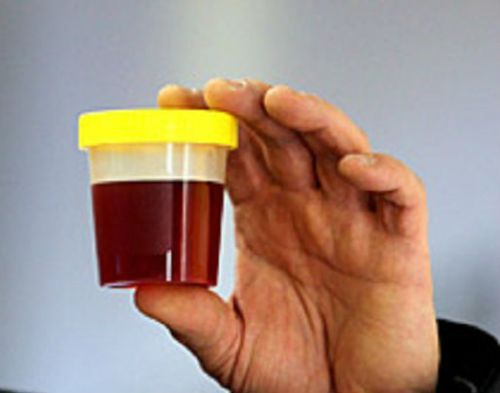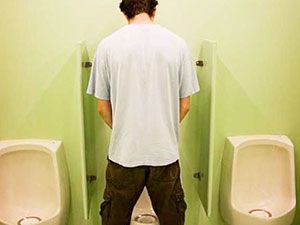Urination is a complex reflex process, regulation of which is the collaboration between the receptors of the bladder, spinal cord neurons and control center in the brain. A healthy adult bladder is filled and emptied 5-7 times a day.
The urge to urinate occurs when irritation of the urinary channel and bladder neck, richly supplied with nerves and responds to stretching the muscle wall.
However, the nerve receptors can irritate not only the bladder, but some other reasons – the brain is sent a false pulse, an excess of urine, causing a false urge to urinate.
The mechanism of disorders of the urinary system
The urinary system is a group of organs consisting of:
- Kidney – paired bean-shaped organs that perform the filtration function and regulator of chemical homeostasis (the stability of all biological processes of the body).
- Ureters – paired hollow organ that transports urine from the kidney to the bladder.
- The bladder is “reservoir” for urine coming from the ureter.
- The urinary canal (urethra) is a tubular body that provides an unobstructed drainage of urine from the body.
The main functions of the urinary organs are:
- controlling the balance of biological fluids;
- the presence of toxins;
- maintaining salt balance;
- cleansing blood from toxins and pollutants, which enter the human body from the external environment or formed in the result of vital biochemical processes.
Violation of the process of urination can occur at any level of the urinary system and be triggered by certain factors. Let’s consider the main causes of false urgency to miccai (urinate) is a condition in which a single portion of urine is absolutely not significant.
Inflammatory diseases
The most common inflammatory diseases of the urinary system, leading to disruption of the process of emptying the bladder are the following.
Urethritis – infectious or non-infectious inflammatory process can infect the urinary channel of both women and men and children.
Inflammation of the urethra develops as a result of:
- hypothermia;
- of low immunity;
- urolithiasis;
- a wrong diet;
- gynecological problems;
- menopause.
A pathological condition manifested whitish mucous discharge, itching, pain, and imaginary impulses to the bladder emptying.
Cystitis – inflammation affects the bladder.

The factors causing this disease include:
- infection;
- the use of certain medications;
- allergic reaction;
- intestinal pathology;
- hormonal disorders;
- immunodeficiency;
- of kidney disease.
Frequent urination and abdominal pain – the main symptoms of cystitis
Clinical symptoms of cystitis resemble with the symptoms of urethritis, often patients complain of frequent pain in the lower abdomen and lumbar region, fatigue, painful urination, appearance of urine or blood.
Urinary infection
Infectious agents transmitted during intimacy, can irritate the urinary organs and impair their functional activity.
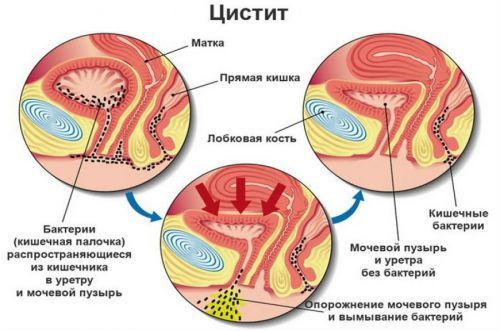
To pathogenic microorganisms that trigger the development of sexually transmitted diseases and genital infections include:
- gonorrhea;
- Trichomonas;
- chlamydia;
- Mycoplasma;
- pale Treponema;
- yeast-like fungi;
- Escherichia coli and Pseudomonas;
- Ureaplasma;
- Klebsiella;
- Listeria;
- Proteus;
- herpevirus.
Infectious-inflammatory process in the urinary system develops as a result of penetration of pathogenic bacteria in the urogenital tract
With any urinary infection develop painful and discomfort in the urinary organs (burning and itching), there are pathological allocation and disorder of the process of urination (frequency, difficulty or nausea no urine output).
Pregnancy
In the period of carrying a baby women are often concerned about the perceived urge to urinate – this is due to:
- the compression of the bladder wall increased the uterus;
- the increase in the number of fluid intake;
- increased renal filtration function.
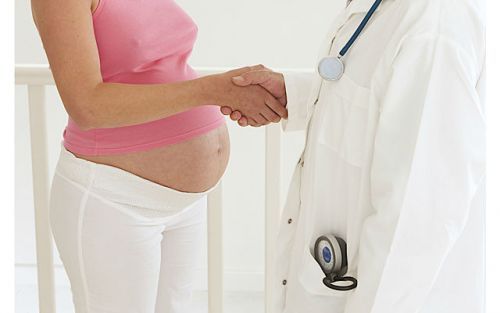
Under normal balance in daily diuresis (the quantity consumed and the selection of fluid), this phenomenon should not cause any anxiety is a normal physiological state.
Treatment pregnant women should only deal with specialist
However, if you reduce the amount of fluid and the appearance of pathological soreness during urination is necessary to consult a qualified nephrologist.
Prostate disease
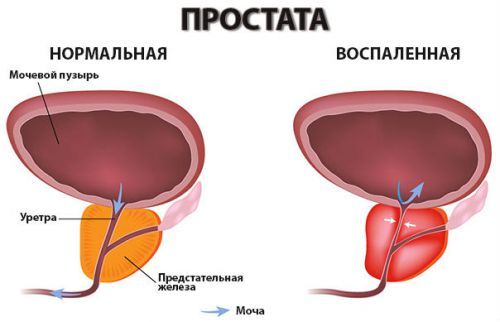
Pathological processes in the most important male body responsible for overall health of representatives of a strong half of mankind, their sexual function and mental status, can deliver a lot of unpleasant moments:
- pain in the groin area;
- false urge to of miccai, worse in the night period;
- the sudden urge at any time;
- difficulty emptying the bladder;
- a weak stream of urine;
- feeling of incomplete urine excretion.
Dysfunction mochevyvodjashie can be caused by compression of the urethra by the inflamed parenchyma of the prostate gland acute or chronic prostatitis, benign or malignant tumors in the gland
For chronic pathologies of the prostate wavy – lasting for years with periodic periods of remission. Sustained improvement in men perceive as the recovery, however, the inflammation can gradually spread throughout the urinary system. That is why at the first signs of the pathological condition of the prostate necessary to visit a specialist andrologist.
Other factors that affect urinary function
False urge to empty the bladder can occur when:
- pathological lesions of the nervous system;
- high stress – emotional arousal causes an intense release of adrenaline, which disrupts the neural connections to the muscular walls of the bladder;
- the abuse of alcohol, spicy foods, sugar substitutes, tea, coffee – these products contain ingredients that have irritating effects on the muscle membrane of the bladder;
- kidney stones – blockage in the bladder stones, he accumulates a large amount of urine, the bladder wall is too stretched, resulting in the urge to micchi, but because of the barriers of stones urine not secreted;
- constipation – filled intestines also creates a barrier to adequate urine output;
- iron deficiency anemia is a long flowing disease leads to thinning of the mucous membranes of the urinary organs, which makes them sensitive and provokes a false urge to urinate;
- prolapse or uterine cancer – gynecologic pathology result in changes to the location of the pelvic organs and the compression of the bladder, which causes false Mikli.
Methods of diagnosis and treatment
With the appearance of disorders of urination should contact a competent medical center to experienced specialist.
First need to visit a practicing urologist, who will conduct the necessary instrumental and laboratory tests for the presence of pathological processes in the urogenital organs
Survey methods include:
- Ultrasound;
- cystoscopy;
- clinical examination and specific urine sample;
- microbiological evaluation of the composition of the microflora of the mucous membranes of the urinary organs;
- biochemical analysis of blood to the kidney complex.
In the presence of violations of the functional activity of the Central nervous system need to consult a psychotherapist and a neurologist.
Complex treatment is carried out using:
- antibacterial drugs;
- courses of physical therapy;
- correction of diet;
- recovery of metabolic processes.
It is important to remember that self-diagnosis and self-treatment in the presence of disorders process urine is unacceptable! The use of drugs without consulting a doctor can eliminate the clinical manifestations, but the main reason is the pathological condition will remain unchanged.


